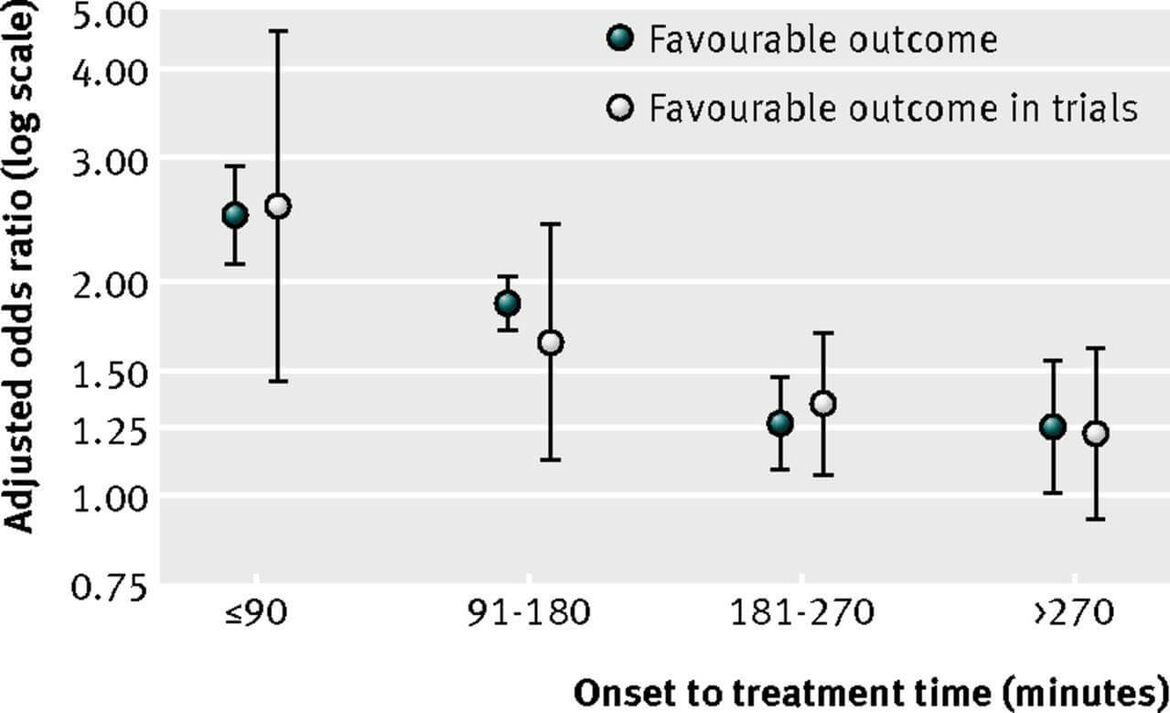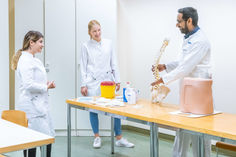STROKE OUTCOME RESEARCH
OVERVIEW
Stroke is the leading cause of disabilities and the third leading cause of death in developed countries. In Baden-Württemberg, a prospective planned three level stroke care system was implemented in 2000 following the advances in thrombolytic therapy. It consists of comprehensive stroke centers, regional centers and local stroke units. Accompanying the stroke care concept, a consecutive and prospective database was implemented in 2005 with the legal requirement to register all patients aged ≥18 admitted to a hospital with the diagnosis of stroke (according to their ICD-10 (international classification of diseases, 10th revision) code). The extensive documentation of clinical data - including kind and timing of diagnostic and treatment procedures – allows for the analysis of stroke treatment and outcome of patients in daily clinical routine at different kinds of hospitals.
Prof. Dr. med. Christoph Gumbinger
Arbeitsgruppenleiter
(AG Versorgungsforschung)
Team
Arbeitsgruppenleiter
Wiss. Mitarbeiter/-innen
-

PD Dr. Christian Stock
Aktuelle Doktoranden
cand. med. Christina Verez Sola, Karsten Ritter, Katharina Riehle
Aim
The main goals of health services research are to identify the most effective ways to organize, manage, finance, and deliver high quality care, reduce medical errors, and improve patient safety. (AHRQ 2000)
In der Neurologie sind für die zeitkritische Schlaganfallversorgung komplexe, flächendeckende Versorgungsstrukturen geschaffen worden. Weiterhin ist die über die Akutversorgung von Schlaganfallpatienten im Krankenhaus hinaus gehende Versorgung eine Herausforderung für das Gesundheitssystem. Der Fokus der AG Versorgungsforschung in der Neurologie liegt auf der Evaluation und Erarbeitung von Ansätzen für die Optimierung für die Versorgung von Patienten mit Schlaganfällen.
Randomized clinical trials are mainly conducted at dedicated stroke centers, while in daily clinical practice the majority of patients are treated outside these dedicated centers. In addition, inclusion and exclusion criteria used in randomized, controlled thrombolytic therapy trials exclude important patient groups for various reasons (e.g. general approval regulations of health authorities). Thus, one research focus of our group is to analyze outcome of patients treated with thrombolysis in clinical routine. We demonstrated that thrombolytic therapy in daily clinical practice is associated with good clinical outcome in a time dependent pattern (Gumbinger BMJ 2014). Association of thrombolytic therapy with good outcome is comparable between daily clinical routine and data of randomized trials, although in routine, patients were treated with different levels of stroke expertise. Also of interest is the association of thrombolytic therapy in different subgroup of patients (e.g. patients older 80 years or with preexisting disabilities; Reuter Eur J Neurol 2016).

A second line of investigation addresses quality in stroke care delivery. We showed that hospitals without stroke units do not provide stroke care with results comparable to hospitals with stroke units, helping decision makers to modify and improve stroke care (Gumbinger Neurology 2016).
Another research focus of our group is to develop stroke care for regions with minimal access to stroke care. We know that the highest burden of stroke-related death and disabilities hits people in low-and-middle-income countries (LMICs). Despite the available knowledge in developed health systems, evidence-based therapies are often not transferred to LMICs due to financial, geographical and sociocultural barriers. In Nepal, around 90% of the population has no access to even basic stroke care. In 2020, we established a cooperation with the Nepal Stroke Association, the “Nepal Stroke Project” (https://nepalstrokeproject.org), which is supported by Hospital Partnerships funding program of the Deutsche Gesellschaft für internationale Zusammenarbeit (GIZ) GmbH. The aim of the project is to improve quality of stroke care, implement quality monitoring and raise public awareness of stroke. We closely work together with the WHO and the Nepalese Ministry of Health to develop feasible and cost-effective approaches for affordable quality stroke care in Nepal.
Future work will focus on the incorporation of recent results from the large thombectomy trials in clinical routine, including the evaluation of thrombectomy in acute stroke in clinical daily routine. Another focus is to develop strategies to provide thrombectomy to a larger population of stroke patients.
Förderung
Ministerium für Wissenschaft, Forschung und Kunst Baden-Württemberg
Deutsche Gesellschaft für internationale Zusammenarbeit
Kooperationen
Lehre
Im Rahmen der Förderung innovativer Lehrprojekte im Bereich Wissenschaftlichkeit in der Medizin hat die Medizinische Fakultät die Entwicklung des neuen Lehrprojekts „Grundlagen Qualitativer Forschung für Medizinstudierende“ gefördert. Das Projekt wird im Wahlfachtrack Global Health angeboten und beinhaltet zwei Vorlesungen zu den Themen „Wie macht man Qualitative Forschung?“ und „Wie bewertet man Qualitative Forschung?“ sowie den interaktiven Workshop „Die Kunst des Fragens“. Darüber hinaus wird für (internationale) Student*innen und Doktorand*innen ein monatlicher Journal Club „Qualitative Versorgungsforschung“ abwechselnd auf Deutsch und auf Englisch angeboten. Ansprechpartner für Rückfragen sind Dr. Loraine Busetto und Prof. Dr. Christoph Gumbinger.
SELECTED PUBLICATIONS
Gumbinger C, Reuter B, Hacke W, Sauer T, Bruder I, Diehm C, Wiethölter H, Schoser K, Daffertshofer M, Neumaier S, Drewitz E, Rode S, Kern R, Hennerici MG, Stock C, Ringleb P: Restriction of therapy mainly explains lower thrombolysis rates in reduced stroke service levels. Neurology 2016;86:1975–83
Gumbinger C, Reuter B, Stock C, Sauer T, Wiethölter H, Bruder I, Rode S, Kern R, Ringleb P, Hennerici MG, Hacke W; AG Schlaganfall, Time to treatment with recombinant tissue plasminogen activator and outcome of stroke in clinical practice: comparison with randomized clinical trial results BMJ 2014;348:g3429
Busetto L, Stang C, Hoffmann J, Amiri H, Seker F, Purrucker J, Ringleb PA, Nagel S, Bendszus M, Wick W, Gumbinger C; Stroke Consortium Rhine-Neckar. Patient-centredness in acute stroke care - a qualitative study from the perspectives of patients, relatives and staff. Eur J Neurol. 2020 Apr 26. doi: 10.1111/ene.14283
Gumbinger C, Ringleb P, Ippen F, Ungerer M, Reuter B, Bruder I, Daffertshofer M, Stock C; Stroke Working Group of Baden-Württemberg. Outcomes of patients with stroke treated with thrombolysis according to prestroke Rankin Scale scores. Neurology. 2019 Nov 12;93(20):e1834-e1843
Ungerer MN, Ringleb P, Reuter B, Stock C, Ippen F, Hyrenbach S, Bruder I, Martus P, Gumbinger C; AG Schlaganfall. Stroke unit admission is associated with better outcome and lower mortality in patients with intracerebral hemorrhage. Eur J Neurol. 2020 May;27(5):825-832.











